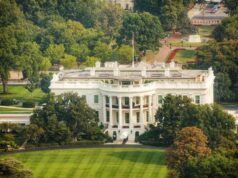The legal standoff between Binance and the US Securities and Exchange Commission (SEC) has taken a surprising turn as both parties agreed to a 60-day pause in litigation. The decision coincides with the formation of a new SEC Crypto Task Force, signaling a potential shift in how regulators approach digital assets. As Washington reassesses its stance on crypto, industry stakeholders are watching closely to see if this move leads to meaningful policy changes or merely delays an inevitable showdown.
A Strategic Pause or a Regulatory Turning Point?
The SEC’s lawsuit against Binance, alleging violations of U.S. securities laws, has been one of the most high-profile cases in crypto regulation. The recent decision to halt proceedings temporarily raises questions about the regulator’s evolving approach under the new political and regulatory climate.
The formation of the SEC’s Crypto Task Force comes at a time when the U.S. government is increasingly engaging with digital assets. The initiative aims to develop clearer guidelines for cryptocurrency regulation, addressing longstanding industry concerns about regulatory uncertainty. The legal pause may allow Binance and the SEC to seek a resolution outside the courtroom, potentially setting a precedent for future regulatory disputes in the crypto sector.
The Impact on Binance and the Crypto Industry
For Binance, the pause represents a temporary relief from legal pressures. It gives the exchange time to navigate compliance strategies amid evolving regulations. However, it does not necessarily signal a victory. The SEC’s case remains active, and the outcome will likely have far-reaching implications for the broader crypto industry.
If the SEC adopts a more structured regulatory framework, it could bring long-awaited clarity to the industry, fostering innovation while ensuring compliance. Conversely, if the legal battle resumes with a stringent stance, it could reinforce concerns that U.S. regulators remain committed to aggressive enforcement rather than constructive engagement with the crypto ecosystem.
Political Influence and the Future of Crypto Regulation
The Biden administration’s regulatory posture toward crypto had been marked by strict enforcement. However, the current political landscape appears to be shifting. President Donald Trump’s recent statements and actions since taking office indicate a pro-crypto stance. Also, Congress has shown renewed interest in developing a balanced regulatory framework for digital assets.
The pause in the Binance-SEC case may reflect broader political considerations, as Washington recalibrates its approach toward the fast-growing crypto sector. With the SEC’s new task force and bipartisan congressional efforts to shape crypto policy, the next few months could determine whether the U.S. moves toward a structured regulatory framework or continues its pattern of reactive enforcement.
>>> Read more: Crypto Regulation: A Shift in the US Government’s Approach
The 60-day pause in the Binance-SEC legal battle is more than just a procedural delay. It is a moment of reckoning for crypto regulation in the U.S. While the formation of the Crypto Task Force suggests a possible shift toward clearer guidelines, the ultimate impact remains uncertain. Will this lead to a more predictable and innovation-friendly regulatory landscape, or is it merely a brief respite before intensified legal action resumes? As the crypto industry watches closely, the answer could shape the future of digital asset regulation for years to come.
Readers’ frequently asked questions
What exactly does the SEC’s lawsuit against Binance claim, and why is it so significant?
The SEC alleges that Binance violated U.S. securities laws by offering and selling unregistered securities to American investors. The regulator also claims that Binance commingled customer funds, failed to implement proper compliance measures, and misled investors about its operational structure. This case is significant because it represents one of the most aggressive actions against a major crypto exchange, with potential consequences for the entire industry. If Binance is found guilty, it could set a precedent for how regulators treat other global crypto platforms operating in the U.S. without full regulatory compliance.
What is the SEC Crypto Task Force, and how does it impact the case?
The SEC’s Crypto Task Force is a newly formed regulatory initiative aiming to provide clearer guidelines for digital assets, addressing concerns about the lack of uniformity in U.S. crypto regulation. Its creation suggests that U.S. regulators may be shifting from a primarily enforcement-driven approach to one that includes more structured guidance. While the task force’s specific role in the Binance case remains unclear, its formation could indicate that regulators are considering a more comprehensive framework rather than just pursuing legal action against individual firms. If this initiative succeeds, it could help define the rules that companies like Binance must follow. That would potentially reduce future legal conflicts.
How does President Trump’s stance on crypto affect the Binance-SEC case and the broader industry?
Since taking office, President Donald Trump has taken a notably more pro-crypto stance than his predecessor, signaling a potential regulatory shift. His administration has hinted at making the U.S. more crypto-friendly, which could mean regulatory relief for companies like Binance. However, it’s unclear whether this shift will result in legislative changes or simply a temporary easing of enforcement actions. If Congress follows through with efforts to establish a clear and innovation-friendly regulatory framework, crypto firms may find it easier to operate within the U.S. without fear of abrupt legal crackdowns. That said, the SEC operates independently, so while the administration’s tone may be shifting, the agency’s long-term stance remains uncertain.
What Is In It For You? Action Items You Might Want to Consider
Stay Alert for Regulatory Updates
With the SEC’s new Crypto Task Force taking shape, traders should closely monitor policy developments. If the task force leans toward clearer, structured regulations, it could create a more stable trading environment. Conversely, if enforcement actions ramp up after the 60-day pause, heightened regulatory risk could lead to market volatility. Keeping an eye on official statements and policy shifts will help you anticipate market reactions.
Evaluate Your Exposure to Binance and U.S. Regulatory Risks
The legal pause is not an acquittal, and the case could still resume with aggressive enforcement. If you’re trading on Binance or holding assets tied to its ecosystem, consider hedging against potential disruptions. Diversifying your trading platforms and ensuring compliance with local regulations can protect you from sudden regulatory shifts that may impact liquidity and access to services.
Prepare for Market Sentiment Swings
A favorable regulatory outcome could boost market confidence, while a harsh crackdown could send shockwaves through the crypto space. Use this window to assess market sentiment indicators, set stop-losses, and adjust your risk management strategies. Whether the case leads to a more structured framework or reignites legal battles, positioning yourself for different outcomes will help you stay ahead of market movements.











[…] – reflects behind-the-scenes negotiations and evolving regulatory attitudes. While the SEC lawsuit remains unsettled, the platform’s ability to re-establish banking partnerships seems to indicate that […]